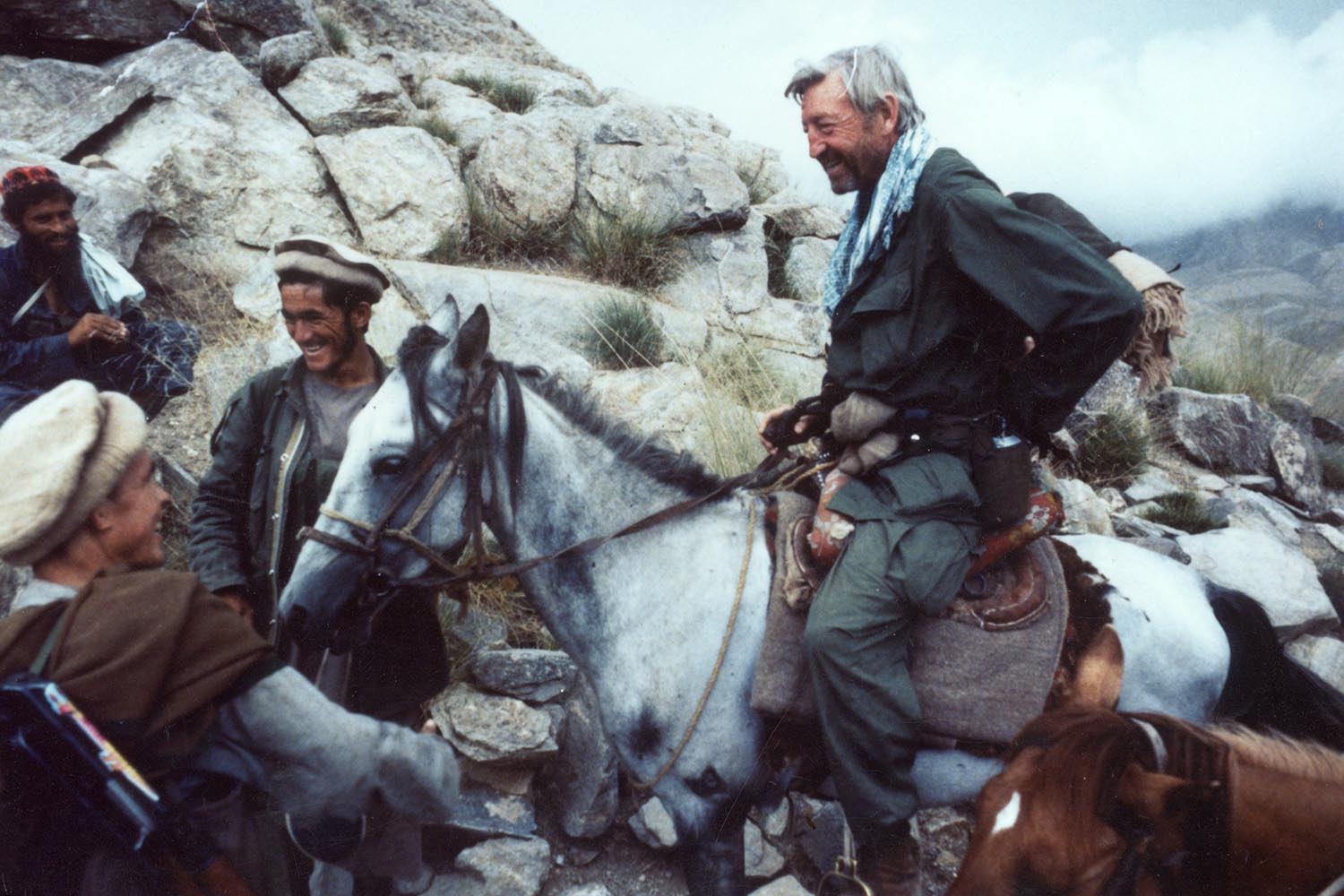Only a “very odd person” should enjoy working as a war reporter, said Sandy Gall, one of the finest. “You are just there to tell a story,” he said. “War is bloody dangerous.” It was a risk he was prepared to face time and again in a long broadcasting career, notably in Afghanistan during the Soviet Union’s decade-long invasion in the 1980s.
In 1982 he spent three months trekking across the mountainous country, avoiding bandits and landmines, and living off boiled goat, in order to get to know Ahmad Shah Massoud, the “Lion of the Panjshir Valley”, whose mujahideen were fighting a dogged resistance. “I was aware of an aura, a mystique that set him apart,” Gall wrote of this 28-year-old commander whom he called the Afghan Napoleon.
Soon after he arrived in one village, it was bombed by Soviet aircraft, killing 20 people. It would have been the first footage of Russians at war for decades, Gall said, but, having sent the camera equipment by mules on the long way round the mountain, he had to recreate the attack for his dispatch using photographs and archive sound effects. “With that went the chance of winning any prizes,” he sighed.”
Gall returned again and again to broadcast from a war that most of the world was ignoring, earning the nickname of the Afghan Newshound. He came to love the country, which he said reminded him of Scotland only without whisky. In 1983, wishing to help one of Massoud’s commanders who had lost a foot on a landmine, he founded a charity providing prosthetics and physiotherapy for those maimed in the conflict.
Massoud, who was assassinated by al-Qaida two days before the September 11 attacks in 2001, had warned him that without assistance from the west the country could become a terrorist-training base. When Gall wrote his fifth book about the country in 2012, he asked Tony Blair for an interview, but Blair declined. “When it was heard that the subtitle of my book was ‘Why it all went wrong’ I think that ended it,” Gall reflected.
Henderson Alexander Gall was born in what is now Malaysia – where his father was a rubber planter – and raised in Scotland. He boarded at Glenalmond College, saying that if you can survive winter in a Scottish public school you can face any adversity. After national service, he studied French and German at Aberdeen University, where he was later rector.
He began his journalism career on the Aberdeen Press and Journal “subbing garden show reports” before getting a job with Reuters in 1953. After a posting to Berlin, he was sent to cover the Mau Mau rebellion in East Africa with the cheery farewell of “Don’t worry about the money now”, which later gave him the title of a memoir.
He was arrested in Congo as a spy and was awaiting execution before the UN negotiated his release
He was arrested in Congo as a spy and was awaiting execution before the UN negotiated his release
After covering the Suez conflict in 1956, he was sent to Budapest, where he met his future wife, Eleanor, who worked for the British legation. Gall battled with communist censors who told him that the execution of Imre Nagy, leader of the Hungarian revolution, was “nothing to report”. Eleanor would later run his Afghan charity. They had three daughters – one of whom also became a foreign correspondent – and a son.
In Congo in 1962, he was arrested as a spy and was awaiting execution before the UN negotiated his release. He joined ITN in 1963 and reported from Cyprus, China, Pakistan and Vietnam, where he stayed after the fall of Saigon. Departing British consular staff gave him the keys to their club so he and other reporters could use the pool and bar.
In 1972, he was sent to Uganda, where he met Idi Amin. “Unfortunately, it was during one his violently anti-British periods,” Gall wrote. He was imprisoned in a cell with bullet holes in the walls and blood on the ceiling while outside he could hear prisoners being beaten with hammers. He was deported and the experience inspired a novel, Gold Scoop.
Newsletters
Choose the newsletters you want to receive
View more
For information about how The Observer protects your data, read our Privacy Policy
By then he’d begun 21 years as a News at Ten anchor where he was often paired with the convivial Reginald Bosanquet. Gall said a night out with him could be as dangerous as any foreign posting.
Gall was known for his craggy looks, with a nose that had been broken from boxing and from falling asleep at the wheel of a car and crashing into a tree. He also presented A Place in Europe for three years and his familiarity led to appearances on pro-celebrity golf and televised Scrabble.
He made his final appearance as a newsreader in January 1991, but began a special reporting role that month and was the first reporter into Kuwait with the allied forces in the Gulf war. After leaving ITN in 1992, he hosted the Radio 4 travel show Breakaway, trekked across the Rub’ al Khali desert for the BBC and made a documentary about Afghanistan, from Alexander the Great to the Taliban for the History Channel.
An adventurer in the old style, he won the Lawrence of Arabia memorial medal in 1987. “Four things are never forgiven a foreign correspondent,” he once said. “The first is to be a coward, the second is to drop his colleagues in the shit. The third is to be mean. And the fourth – a long way behind – is to get things wrong.”
Patrick Kidd
Sandy Gall, foreign correspondent and newsreader, was born on 1 October 1927, and died on 29 June 2025, aged 97
Photograph: News Group Newspapers/News Licensing

